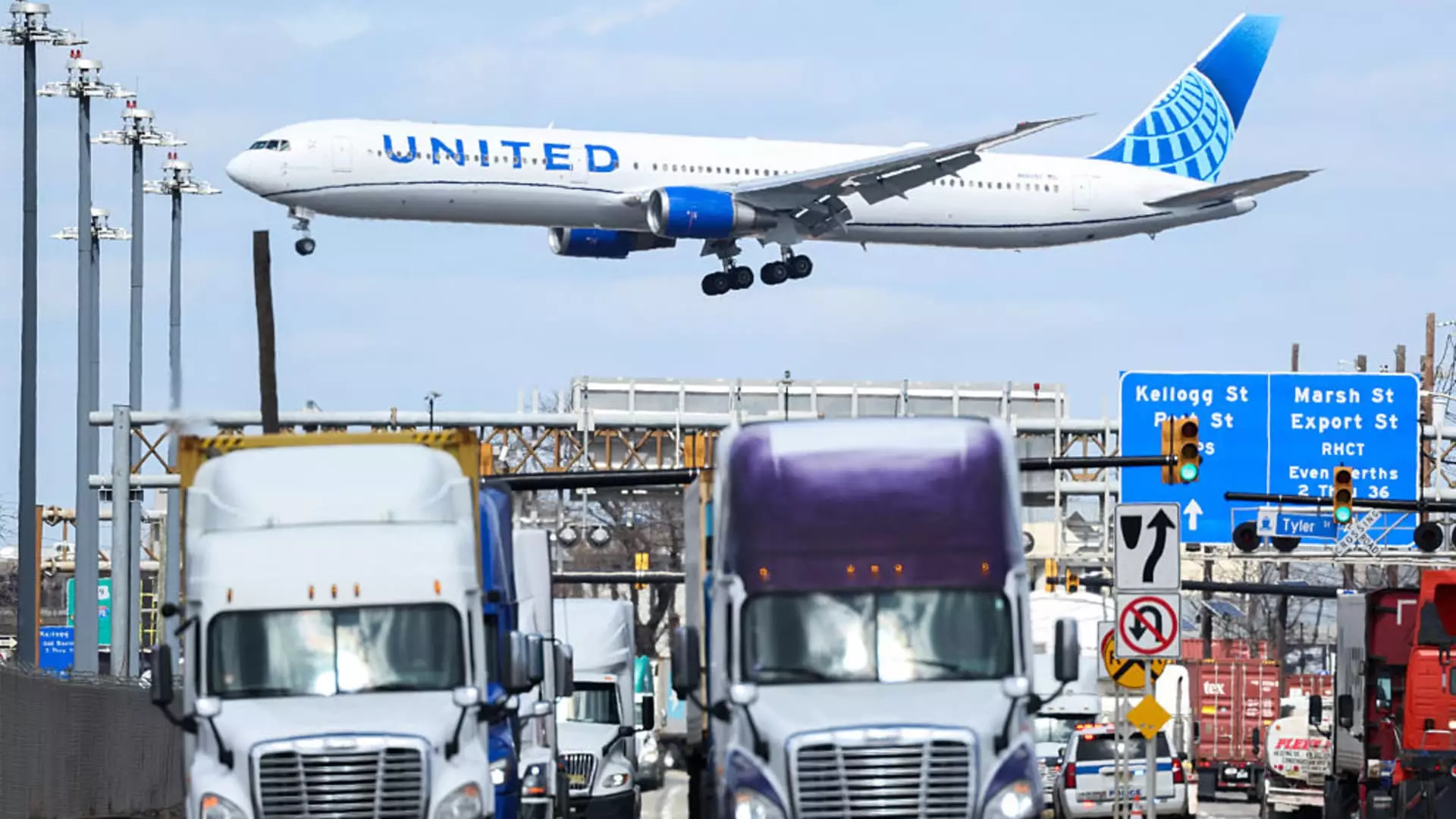In a climate rife with economic unpredictability, United Airlines stands at a crossroads. Announcing its financial outlook and operational adjustments, the airline is facing an impossible-to-predict economic environment. This admission speaks volumes about the state of affairs within the airline industry and reflects broader economic sentiments. As the company maintains its earlier forecast while simultaneously preparing for the potential fallout of a recession, it embodies the delicate tightrope that corporations must walk in these turbulent times.
United’s decision to issue a dual forecast—one that embraces the possibility of recession, projecting earnings considerably lower than previously anticipated—reveals a nuanced understanding of market dynamics. The company is not merely reacting to uncertainty; it is taking measured steps to navigate through it. In defaulting to a more cautious stance, United exemplifies the strategic resilience required in today’s volatile economy, where consumers are increasingly discerning about their travel expenditures and potential financial downturns loom overhead.
Flight Reductions and the Dichotomy of Travel Demand
In response to disappointing domestic travel demand, United Airlines plans to cut its domestic flights by 4% this summer. This strategic reduction highlights the duality the airline faces: while domestic demand may be waning, international bookings continue to soar, notably within the premium cabin sector. As consumers increasingly favor quality and comfort, this shift in booking trends illustrates changing traveler sentiment. The dichotomy paints a picture of an evolving marketplace where the appetite for luxurious travel is steadily increasing, even as budget-conscious choices may wane.
This strategic pivot by United could indicate an understanding that the future of air travel will not simply be about capacity, but rather the cultivation of a premium experience. The move toward high-end offerings positions the airline not just as a transport option, but as a lifestyle choice for affluent travelers. While defending against recessionary trends, United recognizes the intelligence of catering to customers willing to pay more for exclusivity, thereby securing financial stability amidst potential downturns.
Strategic Execution in an Era of Competition
United’s CEO Scott Kirby articulates a clear vision that rests on strategic execution, a necessity for thriving against formidable competitors like Delta Air Lines. While Delta has expressed uncertainty about its full-year outlook, United asserts its multiyear plan, which has resulted in impressive margins during favorable economic conditions. Kirby’s confidence suggests that United has not only weathered past storms but has emerged with the acumen to excel under duress.
Acknowledging that the emotional and psychological impact of economic uncertainty is palpable, Kirby emphasizes that effective strategy is key. As competitors pull back and reassess their growth trajectories, United’s focus on maintaining its operational plans showcases a belief in long-term resilience. However, one must wonder: will this conviction translate to consumer loyalty, or will it be insufficient when consumers make difficult choices?
Profitability Amidst Pressure
The latest earnings report highlights a $387 million profit, a striking turnaround from previous losses. Although the figures exceeded Wall Street expectations for adjusted earnings, the airline’s reported revenue modestly fell short of analyst forecasts. Herein lies a critical nuance—the difference between meeting expectations and surpassing them when navigating an economy fraught with challenges. United’s remarkable leap towards profitability often seems like one step forward and two steps back, revealing the relentless pressure that companies face even in a recovering market.
Yet, optimism breeds action as the airline expects strong performance in upcoming quarters, particularly with premium-cabin bookings and international travel showing marked increases. This is not merely a projection; it is a calculated assertion of confidence in unilateral consumer behavior amidst broader trends signaling doubt. The inherent contradiction in consumer sentiment—where they may hesitate in mass spending but are willing to invest in high-quality experiences—underscores a profound shift in market dynamics.
While United Airlines maneuvers through these complexities, it calls into question how businesses might best sustain growth without sacrificing the very core of their service. The data suggests a need for not just adaptation, but for transformation in strategic planning moving forward, particularly as they navigate the delicate balance between remaining competitive and delivering exceptional value to their clientele.

Leave a Reply